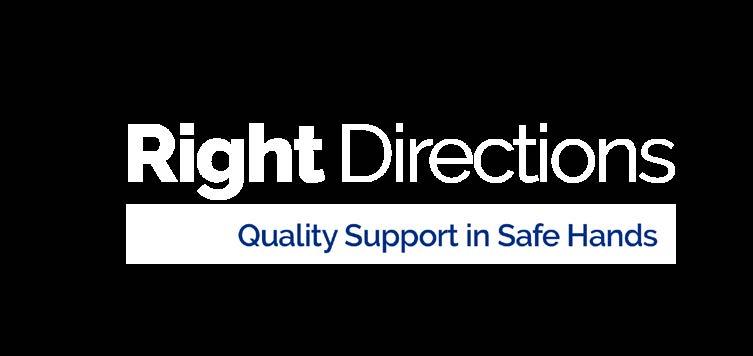
April 2025


April 2025

Around 16.4 million working days were lost in 2024 because of work-related stress, anxiety or depression, with 19% of UK workers saying their employer has no measures in place to relieve work stress. (Health & Safety Executive)
April is Stress Awareness Month and in the workplace, it's a chance to recognise the impact stress can have on employee wellbeing, productivity, and morale. It encourages organisations to open up conversations around mental health, identify common workplace stressors, and promote a culture of support.
We may not be able to identify time off sick as a stress-related issue. If stress becomes too much to handle for staff, this may result in days taken as sick leave, which can have a detrimental impact on an organisation’s finances. Return-to-work interviews can help early identification of short-term absence and enable managers to start dialogue about any underlying issues causing the absence. Promoting a positive attendance culture, while emphasising that genuine sickness absence will be supported, can help to reduce the time taken off, when work-related reasons, such as stress, may be within our control.
We hope that Stress Awareness Month provides you with a good opportunity for open conversations within your workplace and enables you to reflect on your management style. However, it’s important that discussions about stress aren’t prescriptive to April only.
The HSE (The Health and Safety Executive) released its new 10-year strategy in 2022 titled ‘Protecting people and places’. One of its key strategic objectives is to ‘reduce work-related ill health, with a specific focus on mental health and stress.’ The HSE has recognised that there are not the same well-established standards in place for work-related ill health as there are for safety in the workplace. Reducing this trend and tackling stress is a key focus for the HSE in the future.

This info brief has been produced to assist managers in reducing stress within the workplace, knowing how best to react when stress is evident among employees, and taking appropriate action moving forward.
Hopefully, the information in this brief will be beneficial for you and your frontline staff.


CIPD’s (Chartered Institute of Personnel and Development’s) 2022 Health and Wellbeing at Work Survey shows the main causes of employee stress include:
Work factors
• Workloads/volume of work
• Management style
• New work-related demands or challenges due to homeworking as a result of COVID-19
• Poor work-life balance due to homeworking as a result of COVID-19.
Since 2022, when the UK Government’s strategy evolved to ‘Living with COVID-19’, the issues caused by COVID have not seemed to have nearly as much of an impact. However, the effects of the pandemic are still felt in the workplace today, especially regarding employees’ working patterns and adjusting to the changes.
Non-work factors
• Relationship or family issues.
• Personal illness or health issues.
Effective management can help alleviate the work-related factors above.
Reflect on your own management style. Have you implemented a range of routes for feedback so that everyone has some form of safe and comfortable communication?
Understanding your staff’s individual needs and recognising the signs before it gets out of hand can prevent stress, save time, personal stress and money!

Are you aware of the symptoms of stress?
The following scenarios may be indicators of stress and/or anxiety:
• Changes in work performance/productivity
• Evidence of conflict and emotional instability
• Signs of erratic and aggressive behaviour
• Evidence of withdrawal/changes in demeanour
• Physical signs/deteriorating health and wellbeing
• Absenteeism (can be a result of persistent anxiety).
It’s important to note that the signs of stress will not be the same for every member of your staff. Everyone is different, so no two people will manage their stress in the exact same way. Factors like skills and experience, age or disability may all affect whether a worker can cope.
For example, do you know how stress might affect those with neurodiverse conditions such as autism, ADHD and OCD? Neurodivergent individuals can often be susceptible to dips in their self-esteem, but regular positive reinforcement and direct feedback can help to prevent it from manifesting into anxiety and stress.



Because everyone deals with stress differently, the symptoms might not always be obvious. Would you be able to identify what stress looks like for different members of your team? It’s worth having a conversation on a 1-2-1 basis with everyone, either by conducting a questionnaire/survey or having a private discussion, in order to ascertain what stress would look like for them and how they tend to deal with it. You can ask your team what they would prefer.
If you have a large team, is it worth ensuring they are trained to spot the signs?
Taking a preventative approach is morally ‘the right thing to do’. Having an open-door policy is a good means of reducing workplace stress-related symptoms.
At Right Directions, we like to have an open-door policy in which we encourage open communication, feedback, and discussion about any matter of importance to our team members. We find that this builds trust and rapport, and our staff feel comfortable enough to share their thoughts if they’re struggling. In our 1-2-1 meetings, we always start the conversation by asking our employees if they have any concerns or issues regarding their workload and health and well-being, including stress and anxiety.
Frontline staff might feel anxious about speaking up, so if we fail to open that topic of discussion, issues might never be resolved. Checking in on them to make sure they’re happy and content in their work, that they feel supported, and to find solutions to any concerns they may have moving forward,

should be at the forefront of your regular check-ins.
Do you have a well-being policy? If no, it could be very beneficial. If yes, consider implementing the following into your stress management procedure:
• Have regular meetings with staff to agree timings and deadlines for projects etc
• Train managers on how to support staff suffering from work-related stress
• Train frontline staff on how to support their colleagues suffering from work-related stress
• Appoint and train mental health or well-being champions to raise awareness of well-being issues
• Have a clear commitment to employee well-being and a culture of openness. Share and use results of surveys and your risk assessments with employees
• Encourage confidential discussions between staff and line managers regarding stress
• Think about those who might be particularly vulnerable e.g. lone workers, young employees, those with disabilities.
If you find that a member of your staff is stressed, encourage an open discussion, and agree a set of solutions to alleviate the stress. This can be in the form of an individual risk assessment or action plan.
When someone is struggling with stress or their mental health, it can be difficult to find the right words. Working with someone at their own pace and trying to understand how they want to move can be really helpful. BBC Ideas have a short thought-provoking video in partnership with The Open University, which outlines 5 key points to helping someone struggling with their mental health.
Watch the video HERE.


It may help to ask if there’s anything in particular you can do to help, provide emotional support, adapt workload or workstyle where necessary, or agree on more frequent check-ins. It doesn’t hurt to ask your employees how they’d like to be supported.
Are you able to benchmark your sickness levels to track if the number of sick days taken is reducing? If no, rethink your approach to stress management and put a system in place.
At Right Directions, we place a matter of importance on health and well-being within the workplace. We host a range of online On Demand training related to stress and mental health issues, aimed at reducing the stigma around these topics by encouraging open discussions.
Our Mental Health training is supplied for both frontline staff and managers in partnership with BMR Health and Wellbeing, and consists of the following courses:
• Mental Health Awareness course for frontline staff
• Mental Health Awareness course for managers
• Mental Health First Aid – 2 day course
• Mental Health First Aid – Refresher Training

Please visit the training page on our website here to explore all of our available training, or get in contact via info@rightdirections.co.uk or 01582 840098.
For our clients who have access to the Right Place platform, Our RD Doc ‘Mental Health & Wellbeing at Work - Management Standards’ provides more specific legislative guidance such as in-depth risk assessment procedure and how to control stress using the 6 Management standards
